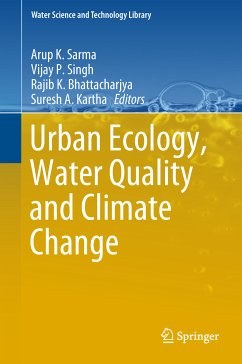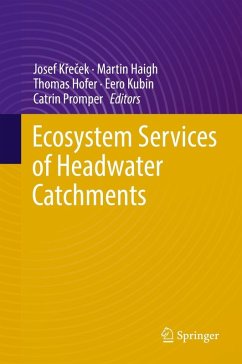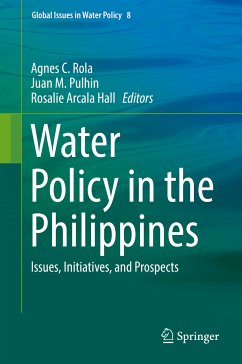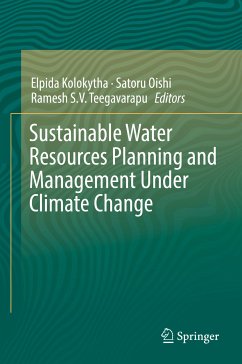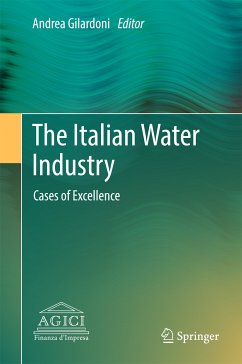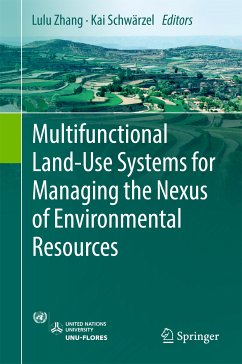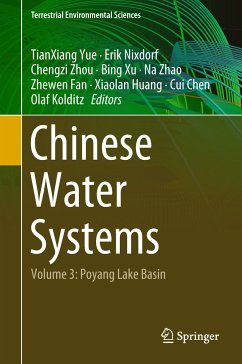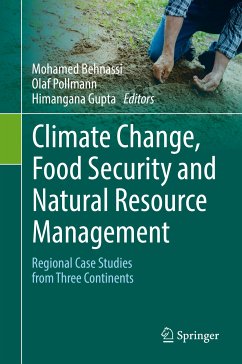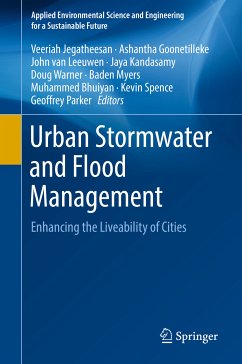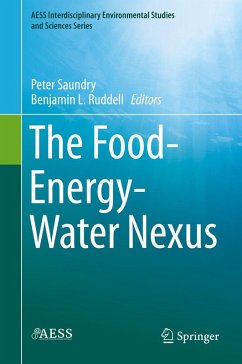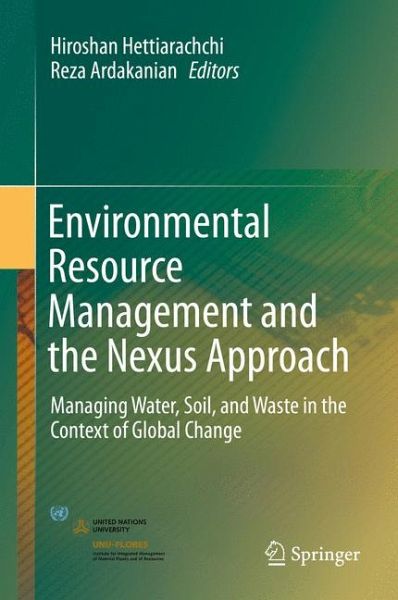
Environmental Resource Management and the Nexus Approach (eBook, PDF)
Managing Water, Soil, and Waste in the Context of Global Change
Redaktion: Hettiarachchi, Hiroshan; Ardakanian, Reza
Versandkostenfrei!
Sofort per Download lieferbar
80,95 €
inkl. MwSt.
Weitere Ausgaben:

PAYBACK Punkte
40 °P sammeln!
This book elaborates how water, soil, and waste may be managed in a nexus and how this approach may help combat global change. In addition to providing a brief account on nexus thinking and how it may help us tackle issues important to the world community such as food security, the book presents the environmental resource perspective of three main aspects of global change: climate change, urbanization, and population growth.Taking as its point of departure the thematic discussions of the Dresden Nexus Conference (DNC 2015) held in March 2015, the book presents the perspectives of a number of t...
This book elaborates how water, soil, and waste may be managed in a nexus and how this approach may help combat global change. In addition to providing a brief account on nexus thinking and how it may help us tackle issues important to the world community such as food security, the book presents the environmental resource perspective of three main aspects of global change: climate change, urbanization, and population growth.
Taking as its point of departure the thematic discussions of the Dresden Nexus Conference (DNC 2015) held in March 2015, the book presents the perspectives of a number of thought leaders on how the nexus approach could contribute to sustainable environmental resource management.
The first chapter provides an introduction to the issues and consent of the book. Chapters 2 and 3 focus on climate change adaptation. Chapters 4 and 5 discuss the role of urbanization as a main driver of global change. The last two chapters of the book present ideas on how the nexus approach may be used to cope with population growth and increased demand for resources.
Taking as its point of departure the thematic discussions of the Dresden Nexus Conference (DNC 2015) held in March 2015, the book presents the perspectives of a number of thought leaders on how the nexus approach could contribute to sustainable environmental resource management.
The first chapter provides an introduction to the issues and consent of the book. Chapters 2 and 3 focus on climate change adaptation. Chapters 4 and 5 discuss the role of urbanization as a main driver of global change. The last two chapters of the book present ideas on how the nexus approach may be used to cope with population growth and increased demand for resources.
Dieser Download kann aus rechtlichen Gründen nur mit Rechnungsadresse in A, B, BG, CY, CZ, D, DK, EW, E, FIN, F, GR, HR, H, IRL, I, LT, L, LR, M, NL, PL, P, R, S, SLO, SK ausgeliefert werden.



